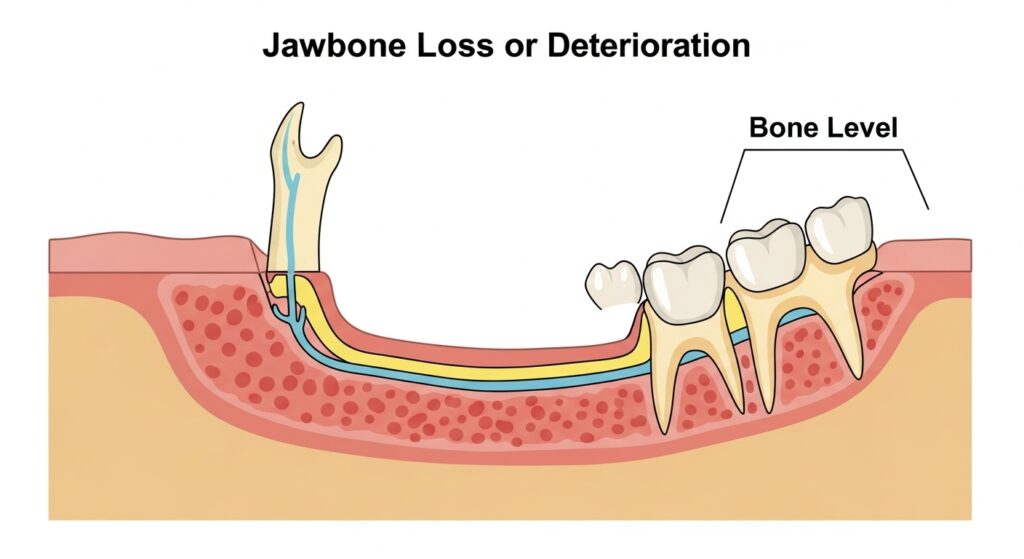In today’s world, a healthy smile is more than just an aesthetic asset — it’s essential to overall well-being and confidence. Yet many people experience oral health challenges that go far beyond cosmetics, affecting everything from their ability to eat comfortably to their self-esteem. For individuals facing serious dental issues, dental implants have emerged as one of the most reliable, long-term solutions.
This article explores 8 signs that you need dental implants, what each sign means for your oral health, and how timely action can restore not only your smile but also your quality of life.
Understanding Dental Implants
Dental implants are small titanium posts surgically placed into the jawbone to act as artificial tooth roots. Once integrated with the bone, they support crowns, bridges, or dentures, offering a natural-looking and durable replacement for missing teeth. Recognizing the early warning signs that implants may be needed can prevent further complications and help you regain confidence sooner.
1. Missing One or More Teeth
One of the most obvious signs that you need dental implants is having missing teeth. Gaps can lead to shifting of remaining teeth, jawbone deterioration, and even changes in your facial structure over time. Implants provide a stable, permanent solution that prevents these issues and restores full function.
2. Difficulty Chewing or Biting
Struggling to chew food comfortably is a major red flag. When teeth are loose, damaged, or absent, eating becomes a challenge. Over time, this can impact nutrition and digestive health. Dental implants restore full bite force, allowing you to enjoy a balanced diet without discomfort.
3. Loose or Unstable Dentures
If your current dentures slip or feel unstable, it’s another of the 8 signs that you need dental implants. Denture movement can cause sore spots, speech difficulties, and embarrassment. Implant-supported dentures lock securely into place, delivering greater stability and confidence.
4. Severe Tooth Decay or Damage
When a tooth is too decayed or structurally damaged to be repaired with fillings or crowns, extraction followed by a dental implant may be the best option. This approach ensures the surrounding teeth remain healthy and prevents further deterioration of the jawbone.
5. Jawbone Loss or Deterioration
Jawbone loss occurs naturally after tooth loss because the bone is no longer stimulated by a tooth root. Over time, this leads to facial sagging and makes wearing dentures difficult. One of the 8 signs that you need dental implants is noticing changes in your facial profile or a sunken appearance. Implants stimulate the bone just like natural teeth, preserving your facial structure.
6. Chronic Gum Disease or Periodontitis
Advanced gum disease can lead to tooth loss and bone recession, both of which are critical indicators that implants might be necessary. After treating the gum disease, dental implants can replace missing teeth and help stabilize your oral health.
7. Insecure About Your Smile
Emotional well-being is just as important as oral health. Feeling embarrassed or avoiding social situations because of missing or damaged teeth is another of the 8 signs that you need dental implants. Implants restore a natural-looking smile, boosting confidence and self-esteem.
8. Difficulty Speaking Clearly
Missing teeth or ill-fitting dentures can alter speech patterns, leading to slurring, whistling, or mumbling. This can affect both personal and professional interactions. Implant-supported teeth mimic natural ones, enabling clearer speech and improved pronunciation.
The Benefits of Acting Early
Recognizing the 8 signs that you need dental implants is only the first step. Acting early has significant benefits:
-
Preserve Jawbone Structure – Prevent bone loss before it becomes severe.
-
Save Money Long-Term – Addressing dental issues early reduces the need for more complex procedures later.
-
Boost Confidence Sooner – Enjoy improved aesthetics, speech, and comfort without delay.
How Dental Implants Transform Oral Health
Dental implants are not just about filling gaps; they revolutionize the way your mouth functions. Here’s how:
-
Longevity – Implants can last decades with proper care.
-
Natural Appearance – Custom-designed crowns blend seamlessly with surrounding teeth.
-
Stability – No more slipping, clicking, or adhesives.
-
Bone Preservation – Implants actively stimulate the jawbone to maintain density.
Who Makes a Good Candidate for Dental Implants?
While the 8 signs that you need dental implants point toward potential need, candidacy also depends on:
-
Overall Oral Health – Healthy gums and adequate bone support are essential.
-
General Health – Conditions like uncontrolled diabetes or smoking can affect healing.
-
Commitment to Oral Hygiene – Daily care and regular dental visits ensure implant longevity.
If you identify with any of the eight signs, consult a qualified implant dentist to assess your situation and create a customized plan.
Addressing Common Concerns
Many people hesitate to get implants due to misconceptions. Let’s clear a few up:
-
“Implants Are Painful” – Modern techniques and sedation make the procedure comfortable.
-
“They’re Too Expensive” – While the upfront cost may be higher than other options, implants often last much longer, making them cost-effective.
-
“Recovery Takes Forever” – Most patients resume normal activities within a day or two, with full healing over a few months.
The Long-Term Value of Dental Implants
By acknowledging the 8 signs that you need dental implants, you’re investing not just in your teeth but in your long-term health. Implants help maintain facial integrity, oral function, and self-confidence well into the future. Unlike bridges or dentures, they do not compromise neighboring teeth and are designed to last decades.
Looking Ahead: A Smile Built to Last
Whether you’re missing one tooth or struggling with unstable dentures, recognizing the 8 signs that you need dental implants can be life-changing. Acting promptly can preserve bone, improve nutrition, and restore your smile before problems escalate.
In the future, dental technology will only continue to improve, offering even more comfortable, durable, and natural-looking implant options. By taking the first step now, you position yourself for a healthier, brighter smile that lasts a lifetime.
Conclusion
Your oral health plays a vital role in your overall well-being, self-confidence, and everyday quality of life. A healthy smile not only enhances your appearance but also supports essential functions like eating and speaking comfortably. When dental issues such as missing or severely damaged teeth arise, they can impact much more than your looks—they may also affect your nutrition, self-esteem, and long-term health.
Recognizing the signs that you may need dental implants is an important step toward protecting your future oral health. There are eight key indicators to watch for, ranging from difficulty chewing and chronic discomfort to shifting teeth and changes in facial appearance. Ignoring these warning signs may lead to further complications, including bone loss and oral health decline.
Dental implants are not simply a cosmetic option; they are a lasting solution designed to restore both the function and beauty of your natural smile. By addressing problems early and considering implants when necessary, you’re making a meaningful investment in yourself. Choosing implants means regaining the confidence to smile freely, enjoying food without discomfort, and preventing further oral health challenges—ultimately ensuring that your smile remains strong, healthy, and beautiful for years to come.







